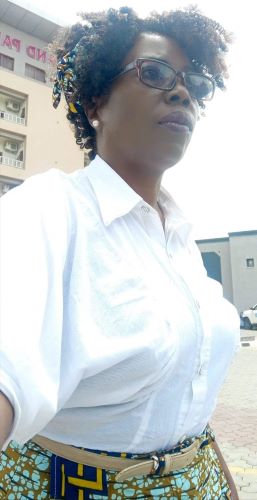Following the footsteps of science, which plays a great role in transforming lives globally, on April 12, 2024, in Lusaka, the capital of Zambia, the Dziwa Science and Technology (DSaT) will stage a “Walk for Evidence-based Science”.
The Executive Director of the Zambia-based DSaT, Veronica Mwaba, in an exclusive interview with ASHENEWS, said “The April date is chosen to walk for evidence-based science. This matters because there is strength in numbers to advocate for a cause, and science advocacy involves a spectrum of activities.”

ALSO READ Women in science need recognition, Expert advocates
“Today, the need for science and technological advancement in the 21st century has become more urgent than before; at least, research has shown this. This brings the need for an increased public understanding of science. You will notice that society is raising questions about new scientific products, especially on health, food safety, climate change, and many more. These questions must be addressed through awareness creation by scientists, and science communicators,” Mwaba told ASHENEWS.
ALSO READ VIDEO: Zambians loot tusk super maize meal from accidented trailer
According to her, “Science has a global face and language. At the national level, scientists must demystify science beyond the region. In addition, researchers have a responsibility to assist humanity in making informed decisions and choices toward food safety, health matters, the environment and climate change, businesses, research, and development.”
Asked that scientists should act as that important bridge that they are between the public and decision-makers, the Executive Director says “The job will be easier when science communicators come in-between to break the scientific jargon, which the scientists fear being misrepresented and misquoted. Science communicators play a critical role not only in breaking down scientific jargon but also in disseminating information to the target audience in a simple language to be understood.
ALSO READ Zambia in talks with WHO on cholera vaccine acquisition
“Studies have shown that scientists are more skeptical in communicating to the general public. They feel freer to share information with their peers. In most cases, their researches end up ‘dust-covered’ in shelves,” Mwaba says, “Access to scientific information and the ability of laypersons to understand and interpret them is complex. Therefore, there is a need to get closer to key sources of information and remind scientists that the media are key development partners and that scientific issues are no exception. “

She posits that the “walk-for-evidence-based science” initiative will help to improve information and communication in science. The event will bring together; scientists, government agencies, academia, women and youths, and individual experts to share insights on selected topics in science.”
Dziwa Science is excited about the unique platform that will provide scientists from specialized disciplines in Lusaka, Zambia to have a light moment and network away from the laboratories.

